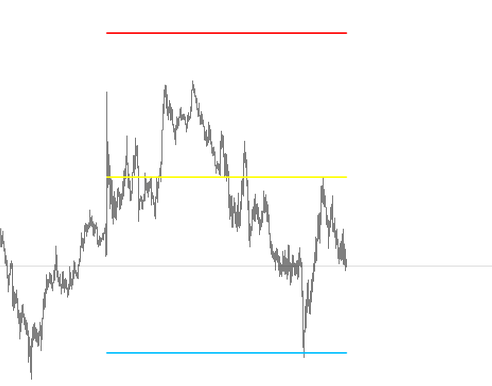
The RBI only allows accepting such securities as collateral for secured loans granted as working capital or for other ‘productive purposes’ from borrowers. Another type of LBO in which the bidding team comprises members of the incumbent management team and externally-hired managers, often alongside a third-party private equity investor. Strong, predictable operating cash flows with which the leveraged company can service and pay down acquisition debt. The method or guidelines used by a private equity fund to determine the value of its portfolio assets.
A leveraged buyout is essentially a strategical process through which a company is acquired by a specialised investment firm through the process of using a small portion of debt financing. The private equity firm then uses the cash inflow from the acquired firm to pay off the debt. This can be taken as a distinguishing feature from the venture firm, which mainly gains control over only a minimal amount of the firm which is young or individual emerging companies.
What is the difference between LBO and acquisition?
However, a leveraged buyout differs from a typical corporate purchase in two primary ways. An LBO involves a higher debt-to-equity ratio than most ordinary corporate acquisitions. An LBO secures the acquisition debt with the acquired company. This is the defining feature of an LBO.
Investment vc fund that originates from a corporation.The total dollar value of Capital Under Management less those resources that have already been invested by a private equity fund. Projected increased demand for the target company’s product over a number of years through sales forecasting. Risky venture LBO is a high risk and high return opportunity.
The precise monetary structuring will depend on the backer’s need to steadiness the danger with its return, with debt being much less risky but much less profitable than capital investment. With an MBO, the goal company’s present administration purchases the company. MBOs typically require monetary resources beyond those of management, such as a financial institution debt or bonds. If a big quantity of debt financing is required, the deal is described as a leveraged buyout .
Recent Terms
Buy-Outs/take-overs The purchase of a company’s shares in which the acquiring party gains controlling interest of the targeted firm. Incorporating a buyout strategy is a common technique used to gain access to new markets and is one of the most common methods for inorganically growing a business. Global private equity’s platinum leveraged buyout firms have started arriving in India with plans to grab a slice of the country’s booming PE market.
What is LBO vs MBO vs MBI?
A Buy-In Management BuyOut (BIMBO) is a form of a leveraged buyout (LBO) that incorporates characteristics of both a management buyout (MBO) along with a management buy-in (MBI). A BIMBO occurs when existing management along with outside managers decide to buy out a company.
Since managers may not possess adequate resources to effect such an acquisition, they are often compelled to seek financing or even a strategic partnership for this purpose. They need exterior financing to facilitate the acquisition, and are sometimes interested in leveraging a few of the assets of the goal firm. If a bank is unwilling to lend, the management will commonly look to non-public fairness investors to fund the majority of buyout.
Banking Exams
This company is then financed using the equity and debt mode of financing. This debt is raised using an asset purchase agreement that stipulates to buy operating assets and uses these assets as the security for the debt. This is done in compliance with the secured project and working capital loan’s structure which allows for asset-backed loans. The holding company shall then purchase the operating assets of the target Indian company on an asset-by-asset basis. Foreign Investors can also invest in equity of the holding company through FDI. It is generally high enough to make the LBO of an asset-intensive company unattractive and unfeasible.
LBOs can also go bad and the management may lose company as the “funder” would be ruthless in case of defaults. Expansion may also go for a toss as the investor may not allow for an increase in exposure of debt into the business. It’s good to do LBOs but getting out of it successfully is the biggest challenge. The business being IPO able / gateway for smooth exit is the biggest requirement for LBOs. Lot of “special situation funds” are operating in India which are ready to take the risk of funding if the promoter is dynamic, the industry outlook is positive, EBITDA is up and growing and the company’s exit route is certain. During the due diligence process, the financial sponsor evaluates the characteristics of an LBO candidate .
Depending on the scale of the acquisition, debt as well as fairness could be offered by multiple get together. Note that in near all cases of LBOs, the one collateralization out there for the debt are the assets and money flows of the corporate. I confirm that Mosaic Digital can share my information for commercial purposes with partners/sponsors difference between lbo and mbo and I can be contacted for business purposes. NASDAQ – An automated information network which provides brokers and dealers with price quotations on securities traded over the counter. Acqui-hire – buying out a company primarily for the skills and expertise of its staff, rather than for its products or services.
- This book assists financial analysts by explaining both the principles involved in leveraged buyouts, as well as detailing the ins and outs of putting together an industry-standard LBO analysis.
- Your chance to actively participate and augment yourself as thought leaders.
- HoneyPot – A highly attractive offering used to entice a specific, targeted audience.
- Part of the rationale that seller personal equity corporations hunt down secondary buyout opportunities is that they offer immediate liquidity just like an initial public offering .
- Dell’s sale is the highest-priced leveraged buyout of a technology company.
Fibre2fashion.com does not endorse or recommend any article on this site or any product, service or information found within said articles. The views and opinions of the authors who have submitted articles to Fibre2fashion.com belong to them alone and do not reflect the views of Fibre2fashion.com. Get territory protection from their vendors, while multi brand retailers will have to face fierce competition if another multi brand outlet is launched in the same area.
LexForti Legal News Network
Most of the time, the management team takes full control and ownership, using their expertise to grow the company and drive it forward. The benefit of an MBO over an LMBO is that the corporate’s debt load could also be lower, giving it extra monetary flexibility. A administration buyout is a transaction the place an organization’s management group purchases the assets and operations of the business they handle. Private fairness companies often use LBOs to buy and later sell a company at a revenue.
A administration buyout is completely different from a administration buy-in , in which an external administration group acquires an organization and replaces the prevailing management staff. It additionally differs from a leveraged administration buyout , where the buyers use the company assets as collateral to obtain debt financing. This lowered value of financing allows larger positive aspects to accrue to the equity, and, consequently, the debt serves as a lever to increase the returns to the equity. Management buyouts are carried out by administration teams that wish to get the monetary reward for the future improvement of the corporate extra immediately than they would do as staff only. Leveraged buyouts are often used as a result of few management groups have the financial assets to buy the goal company outright. A provision in the underwriting agreement between an investment bank and existing shareholders that prohibits corporate insiders and private equity investors from selling at the time of the offering.
The assets of the company being acquired are often used as collateral for the loans, along with the belongings of the buying firm. The use of debt, which usually has a decrease value of capital than equity, serves to cut back the overall value of financing the acquisition. The cost of debt is decrease as a result of curiosity funds typically reduce corporate earnings tax liability, whereas dividend funds normally do not. A leveraged buyout, generally known as an LBO, is a transaction that corporations use to amass other businesses.

In bigger transactions, typically all or part of these two debt sorts is replaced by excessive yield bonds. However, the anticipated rebound available in the market after Labor Day 2007 did not materialize and the lack of market confidence prevented deals from pricing. By the top of September, the complete extent of the credit scenario became apparent as major lenders together with Citigroup and UBS AG announced major writedowns because of credit losses.
Invoking India’s Money Laundering Regime for Environmental Crimes: Impact on Businesses
-Prior to this, he was the promoter of Thums Up, Maaza and Limca, before selling them to Coca-Cola in the 90’s. -Coca-cola lost their opportunity to acquire Bisleri from Chauhan in that deal. Preferred fairness pays a dividend and has fee preferences to common fairness. Financial sponsors are sometimes sympathetic to MBOs as in these circumstances they are assured that management believes in the way forward for the company and has an curiosity in worth creation .
Is M&A and LBO the same?
As the name suggests, LBOs use leverage, or debt, to finance a large part of the purchase price. Unlike an M&A model where the acquirer is often a strategic buyer, the private equity firm is more return-driven, and the LBO model is, therefore, more focused on the Internal Rate of Return (IRR) of the transaction.
Increase in the number of debt results in affecting the debt structure of the acquirer and may lead to an increase in the loan finally being bankrupt. Domestic banks are not allowed to finance the promoters’ contribution towards the equity capital of a company. Granting advances against primary security of shares and debentures including promoters’ shares to industrial, corporate, or other borrowers is not allowed.
Care must be taken to ensure that the interests of the minority shareholders or owners in the selling company are protected and that the sale transaction itself is carried out on arm’s length basis. Today, MBO activities involve promoters divesting their stake in a firm by selling out to PE players willing to finance the asking price. The PE players are flexible enough to enter into a partnering relationship with the existing management. This sort of arrangement is basically just a stake buyout and not a classical MBO. For example, company ABC is a listed entity where the management has a 25 per cent holding while the remaining portion is floated among public shareholders. In the case of an MBO, the current management will purchase enough shares outstanding with the public so that it can end up holding at least 51 per cent of the stock.

Our Legal Journal contains a vast assortment of resources that helps in understanding contemporary legal issues. An MBO can happen in a publicly listed or a private sector company. When it happens in a publicly listed company, it becomes private. Some of the gains from the company going private are reduced listing and registration costs and less regulatory and disclosure overhead. Other benefits include improved efficiency of managers as they own the company and accordingly they have better incentives to work harder. They take decisions that can benefit the company in the long run.
What is the difference between MBO and LBO?
A leveraged buyout (LBO) is when a company is purchased using a combination of debt and equity, wherein the cash flow of the business is the collateral used to secure and repay the loan. A management buyout (MBO) is a form of LBO, when the existing management of a business purchase it from its current owners.
